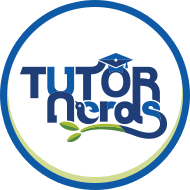A Handy Guide to Medical School Admissions Interviews | TutorNerds


Preparation is a student’s greatest ally when it comes to admissions Interviews.
A personal interview is the final frontier you must conquer to career entry preparation with a postgraduate medical education. Admissions committees are quite impressed by extensive extracurricular activities and high standardized test scores and GPAs. However, committee members must see candidates with their own eyes in face-to-face meetings to come to their final decision . (Read: Medical School Ranking by Difficulty of Admissions)
Chief reason for these personal interviews is that doctors, pharmacists and dentists must have good bedside manner, OTC charm, and chair side demeanor to give patients in distress the best possible care. Superb interpersonal skills are also essential to effective peer collaborations and efficient staff communications. In fact, such skills are so critical that schools use a standardized tool for facilitation of candidate pool elimination called multiple mini interviews.
Dental, pharmacy and medical school admissions interview preparation is easy if planned well. A common mistake that many applicants make is wasting time to memorize stale replies to common queries. Two examples are, “Why do you want to practice medicine?” or “Why did you apply to our pharmacy program?” Rapid delivery of planned replies hurts more than it helps, as healthcare experts quickly recognize staged performances.
Thus, your main goal must be to spark conversation rather than elicit memorization. Honing this craft also comes in handy for spontaneous questions. Thus, the best idea is stating “general ideas” in broad but true terms. In other words, speak like you mean it.
With the above goal in mind, it’s strongly advised to devise questions well ahead of time. Focus on the most likely subjects and make a list of major sub-points. For instance, a good strategy for medical school interview preparation is review why you want to study medicine. Mentally reflect on primary motivations and commit them to memory in a flexible format. Avoid rehearsed lines that are designed to impress but fail to address the real underlying issues.
However, one must never forget to phrase natural responses that sound like normal conversation – not defending doctoral dissertations or courtroom litigation. Preparing for surprise questions can be a bit tricky, but the biggest trick is to prevent underselling yourself. For example, an ideal task for great dental school interview preparation is to think of what you will say if asked about “Obamacare limits on reasonable and customary orthodontic fees.” Still, another excellent study subject for dental school interview preparation is “meth mouth,” a new sub-specialty developed to treat characteristic oral decay from chronic methamphetamine abuse. If you’re asked about something you’re unfamiliar about, take a deep breath to collect your thoughts and give the best truthful answer. (Read: Should medical school applicants take MCAT now, before it gets harder?)
Interview Guide
It’s crucial to understand that cramming for final exams is quite different from medical, dental, and pharmacy school interview preparation. Go through the systematic guide below prior to in-person meetings with admissions personnel:
Mild anxiety and jittery nerves are perfectly normal when facing such an important interview. That’s why you must substitute stress with self-esteem with a constant reminder that you did something to be under the spotlight!
Never let your guard down while waiting around to be interviewed. Some schools purposely inconvenience or confuse applicants with long waits or vague directions. This is done to observe how well applicants will function under pressure of actual practice on real patients.
Be pleasant, polite, and professional. For instance, utilize a firm handshake, bright smile and direct eye contact when you initially meet the interviewer(s). Body language conveys far more candor and volume than impeccable grooming and flawless grammar.
If asked your opinion about a particular issue, offer polite input only. Should it elicit a strong rebuttal, don’t back down. Stay calm and respectfully disagree by supporting your position with proven facts, sound logic, and empirical stats.
Medical school admissions interviews often conclude when candidates are asked if they have any questions. Many applicants wonder what to say or whether to speak at all. The former approach is preferred to demonstrate interest in their institution. Visit the school’s official website to view details about imminent changes with direct impact on your desired program. Avoid generalized subjects like standardized board certification passage and residency placement rates. Instead, pose courteous, yet probing, inquiries into the newly constructed state-of-the-art simulated training lab, additional specialty concentrations and study abroad. Niche practice ops like rural healthcare or geriatric clinical internships, are also good topics.
We hope this list was helpful starting point for your admissions interview prep. Look, this part of the process is crucial, so it’s best you don’t do it alone. A private, one-on-one Orange County medical consultant will give you an advantage over your peers. Don’t wait to call. (Read: 4 Steps to Assembling a Top-Notch Medical School Resume)

100% Satisfaction Guarantee
You’ll love your tutor, or you don’t pay.

We will evaluate your situation and answer any questions. We will then individually match you with one of our tutors. Your tutor will recommend the best strategies for you based on your goals. You’ll work with the same tutor ongoing and you can schedule directly with your tutor.
100% Satisfaction Guarantee – You’ll love your tutor, or you don’t pay
| Cookie | Duration | Description |
|---|---|---|
| cookielawinfo-checkbox-analytics | 11 months | This cookie is set by GDPR Cookie Consent plugin. The cookie is used to store the user consent for the cookies in the category "Analytics". |
| cookielawinfo-checkbox-functional | 11 months | The cookie is set by GDPR cookie consent to record the user consent for the cookies in the category "Functional". |
| cookielawinfo-checkbox-necessary | 11 months | This cookie is set by GDPR Cookie Consent plugin. The cookies is used to store the user consent for the cookies in the category "Necessary". |
| cookielawinfo-checkbox-others | 11 months | This cookie is set by GDPR Cookie Consent plugin. The cookie is used to store the user consent for the cookies in the category "Other. |
| cookielawinfo-checkbox-performance | 11 months | This cookie is set by GDPR Cookie Consent plugin. The cookie is used to store the user consent for the cookies in the category "Performance". |
| viewed_cookie_policy | 11 months | The cookie is set by the GDPR Cookie Consent plugin and is used to store whether or not user has consented to the use of cookies. It does not store any personal data. |

